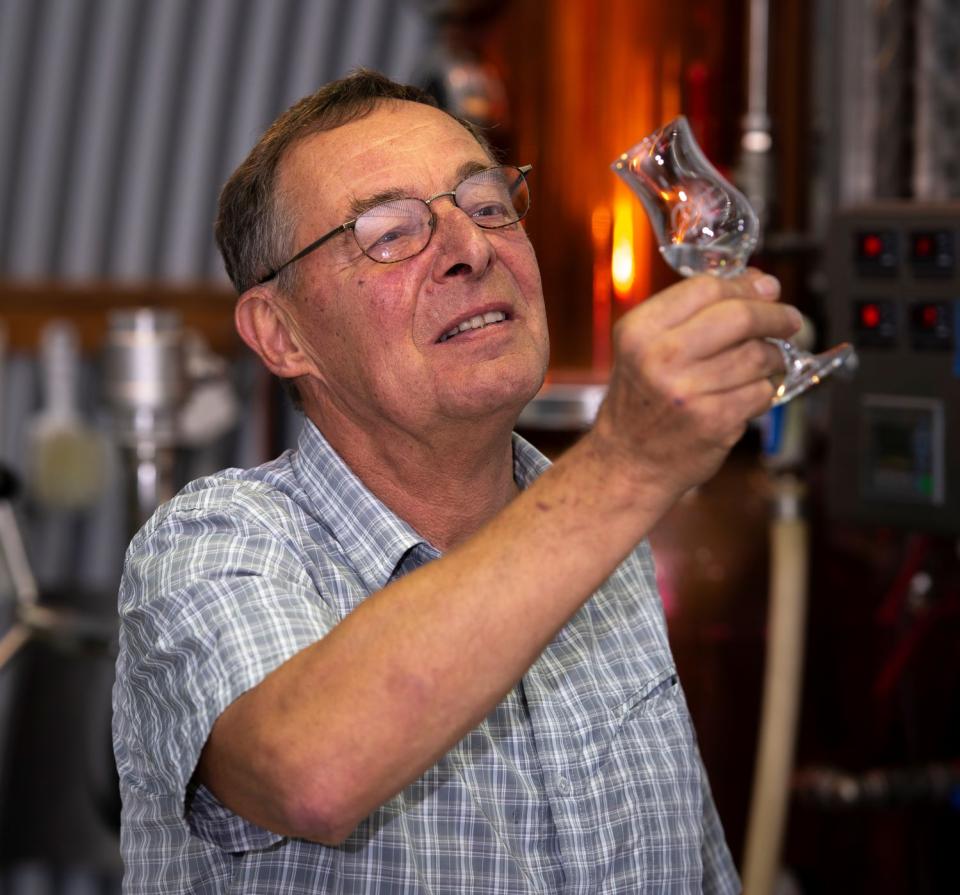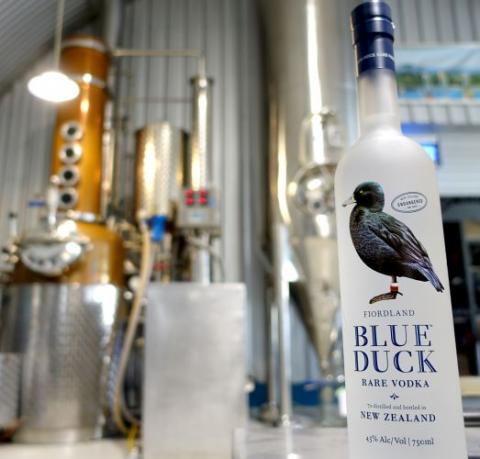Sustainable New Zealand spirit brand, Blue Duck Rare Vodka, was recently given one of the highest accolades at International Spirits Challenge 2022, winning Gold in the vodka category.
It’s the first time a New Zealand vodka has received this recognition since 42 Below in 2008, and now the brand is bringing forward its plans to enter a number of new export markets.
“It certainly makes conversations with distributers and importers that little bit easier when your product is picked out of the crowd and recognised as a truly world class vodka in such a highly regarded international spirits competition,” says a company spokesperson. “It grants you instant bona fide and recognition.”
Blue Duck Rare Vodka impressed the expert ISC judges in a rigorous blind tasting process to win the prestigious accolade. This result reflects the quality of the vodka’s liquid and the craftsmanship involved in the distillation process.
Blue Duck Rare Vodka is handcrafted and distilled in small batches at the distillery in the hills above Tauranga, in the Bay of Plenty. It is a smooth, pure and completely natural vodka that contains no additives, preservatives, sugars, or softeners. Distilled seven times to create the purest vodka possible, Blue Duck has a ‘velvety smooth texture and a highly distinctive and incomparable taste’. The distillation process uses a 100 pecent pure New Zealand natural whey spirit distillate, a sustainable and renewable by-product of the dairy industry.
Sustainability is integral to the Blue Duck Rare Vodka ethos, not only does the product reflect this value, but the brand is committed to supporting the conservation of its namesake, the Whio (blue duck). By purchasing Blue Duck Rare Vodka patrons contribute to helping protect New Zealand’s wildlife and wild places with a donation from the company to support the conservation of the Whio.
The distillery that produces Blue Duck Rare Vodka benefits from generations of knowledge and expertise, dedicated to creating the finest spirits. Originally heralding from Germany, the Deinlein family has poured their passion into this family endeavour establishing sustainable operations for their craft distillery.
The carbon footprint of production is minimised with electricity sourced from hydroelectric plants. The distillery has also reduced water usage and landfill waste. Product packaging is sourced from renewable, recyclable, and biodegradable materials and uses water-based organic ink.
Responsible sourcing is also crucial to creating a product that strives to be both sustainable and ethical.
Turning up the export dial
One of Blue Duck Rare Vodka’s major shareholders and company director, Ben De Haan, recently moved to the UK for family and business reasons, and will be flying the flag for the brand in Europe. Someone who is guaranteed to act in the company’s best interests is seen as a huge competitive advantage. For this reason resources are now focused on supporting De Haan’s efforts in the UK and European markets.
“We’d love to see the birds really take flight around the world and be ambassadors for New Zealand and its unique environment and culture,” says Blue Duck Rare Vodka’s spokesperson. “But as a small niche business we are aware that we need to keep things a bit more grounded and aim for growing sustainably.
“Over the next two to three years our goal is to make the most of having Ben in the UK and Europe, to find a partner across the Tasman, and start establishing some strategic relationships in the Asia Pacific region.
“Although we feel supply chain challenges may have the final say on some of these goals over the next 12 to 18 months.”
Blue Duck Rare Vodka’s advice to other fledgling New Zealand exporters is to not over extend yourself. They have seen too many businesses struggle by going out on a limb with the wrong partners.
“Only work with people who have a good track record and experience specific to your products or industry. This is especially relevant for an industry as highly regulated and taxed as alcohol.”
Photo (top): Head distiller Michael Deinlein.



